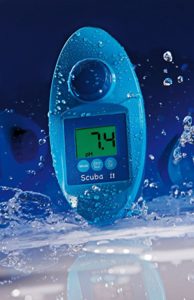Cyanuric Acid
To maintain optimum chlorine levels in the pool
What is cyanuric acid?
Cyanuric acid is a substance contained in dichlorine and trichlorine.
Its particular characteristic is to “protect” the chlorine from the action of the UV rays of the sun that tends to degrade it, therefore helping to maintain optimal chlorine levels in the pool water with a lower dosage of the product; however, when the concentration of cyanuric acid is too high the chlorine loses its effectiveness and the benefit becomes a problem.
What is its optimal concentration?
The optimal concentration of cyanuric acid is 20/30 ppm (mg/l), the maximum limit set by law in public swimming pools is 75 ppm, a higher concentration risks reducing the effectiveness of the chlorine present in the pool.
Swimming pool water can often lose its quality with the development of algae despite pH and chlorine at optimal concentrations; this is often due to concentrations of cyanuric acid that are too high.
Cyanuric acid is a substance with slow degradation and therefore tends to accumulate in the water during the season, the only way to decrease the concentration is to change the water. It is therefore advisable to increase the duration and the frequency of the washing of the filters when you notice that the concentration of cyanuric acid is approaching the limit value, this is more frequent later in the season.
The measurement of cyanuric acid can be carried out with photometers or with specific analysis kits.


